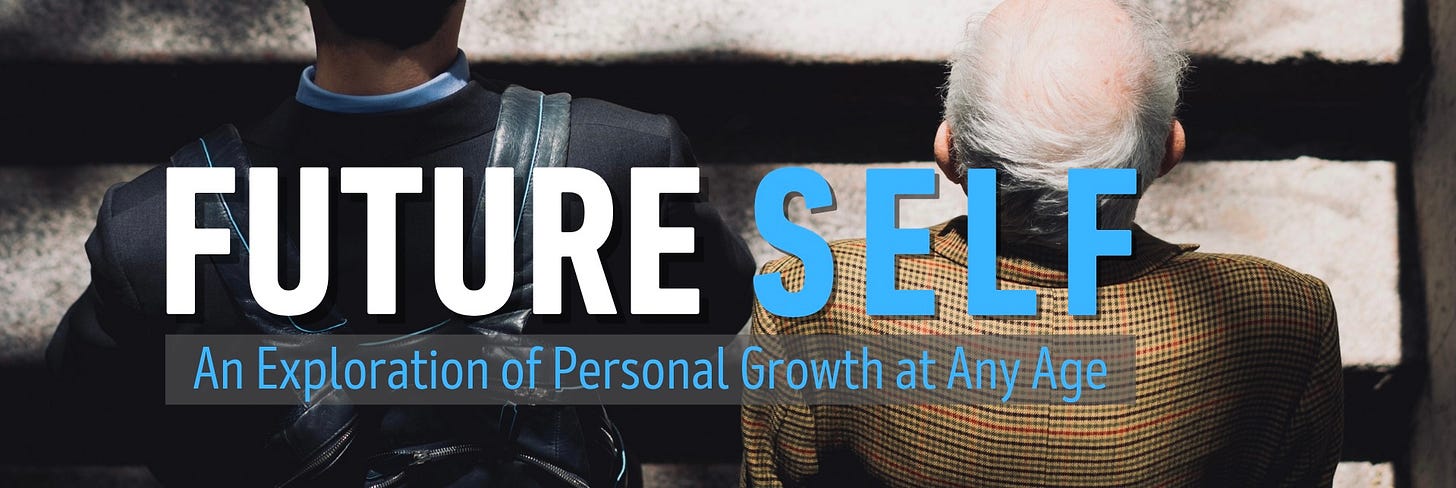Future Self
An Exploration of Personal Growth at Any Age
No matter your age, hang with me until I make my point.
I often wonder what kind of man I will be one day when I am much older, like in my 70s and beyond. You may think that’s odd. I don’t know. But I have images of being more patient than I am now. More kind. More loving and gentle. And less impulsive and reactionary.
As I look into the future toward a more refined version of myself, I need an awareness of who I am right now- someone who is not as patient, kind, loving, and gentle as I would want to be in the present. And significantly more impulsive and reactionary. I am less of the things I want to be. And more of the things I don’t want to be. But in the future, I see a different version of myself.
Whether you are in your teens or your twilight years, have you ever wondered who you will be in the future? Like, what kind of person you will be? Do you imagine a version of yourself that is more realized, more integrated than your current self?
I spent some time pondering these questions over the last year. One of the biggest revelations was that a person does not wake up one day and magically become their idealized version. More specifically, I will not wake up tomorrow and instantly be more patient, kind, loving, and gentle, and less impulsive and reactionary. Without intentionality or cultivating those things in my life presently, I will never be the person I visualize in the future.
Do you see what I’m saying?
If we never take inventory of our shortcomings and misgivings and stay painfully self-unaware of who we are and where we are going, we can never expect to be anything different than what we are. Rather than traveling inward toward the center, we walk in aimless circles daily, never thinking anything more than putting the next foot in front of the other. If that is our pursuit, we will end up in the next stage of life no different than what we are presently. That sobering thought ought to give each of us pause.
If we are to become something more than our present selves, it takes intention and self-awareness. Or, said another way, we have to ask ourselves Who am I? and Where am I heading? Richard Rohr writes in his book Falling Upward: A Spirituality for the Two Halves of Life, “When [we] get [our] Who am I? question right, all of [our] What should I do? questions tend to take care of themselves.” Rather than expound on that last line, I will leave it for you to contemplate.
Peace,
Brandon
Rohr, R. (2011). Falling Upward: A Spirituality for the Two Halves of Life (1st ed.). San Francisco: Jossey-Bass.




